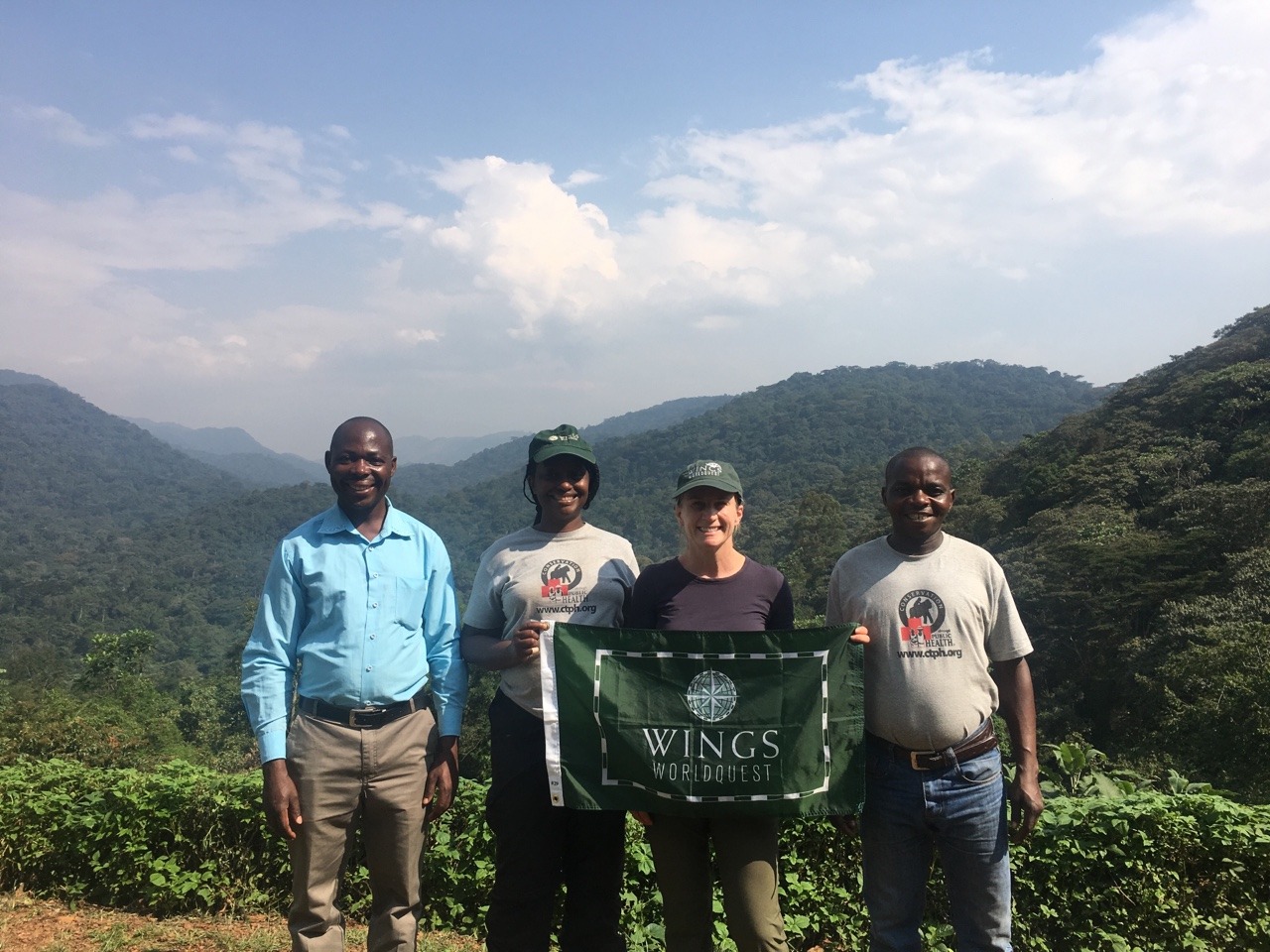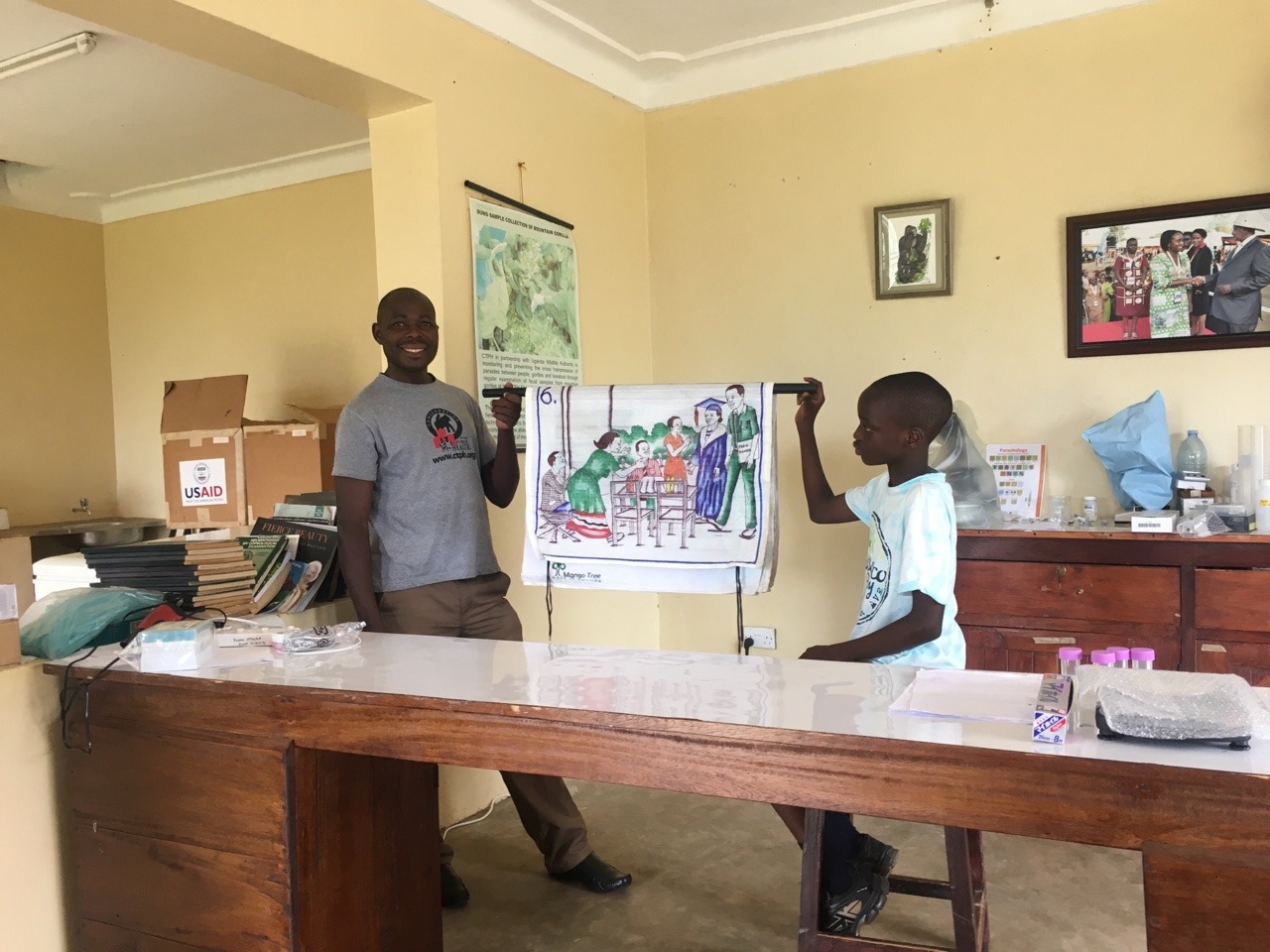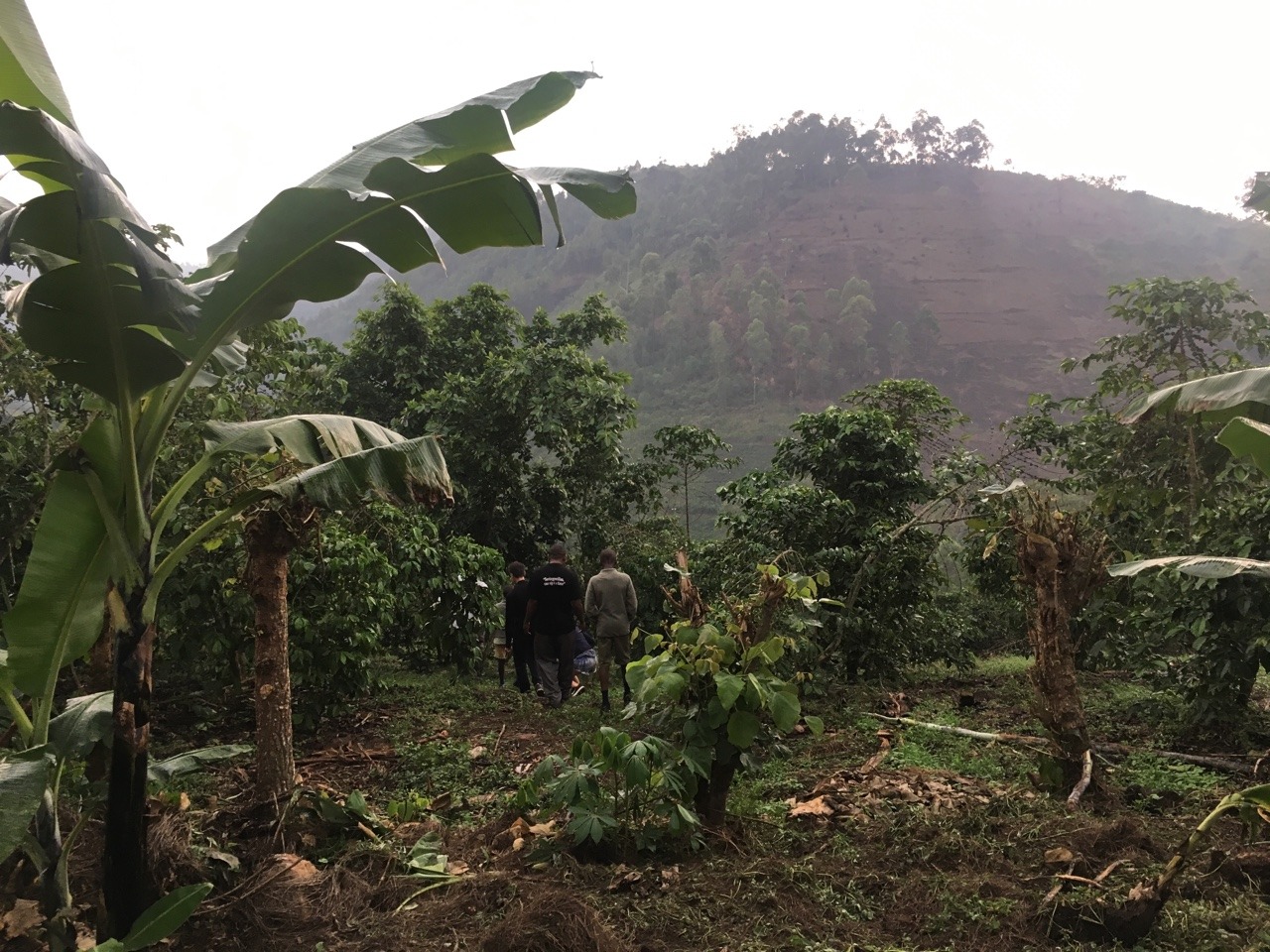How Dr. Gladys is Working to Protect Both the Gorillas and the Humans of Uganda
WINGS WorldQuest Managing Director Yael Jekogian is currently on a month-long round-the-world trip with her family, during which they are visiting visionaries who are running groundbreaking projects with the goal of making the world a better place and creating harmony with humanity, wildlife and nature. During her travels, she is visiting with several WINGS Fellows. The following is the fourth post in a series of dispatches we will publish during her travels. See the rest of the series here.



Ugandan veterinarian Dr. Gladys Kalema-Zikusoka was the first wildlife veterinarian in Uganda. There are only 800 mountain gorillas in the world. Four hundred of them are in Bwindi Impenetrable Forest, and the rest are in other forests in Uganda, Rwanda, and Democratic Republic of Congo.
Dr. Gladys discovered that with people living on the edge of the mountain gorilla’s forest habitat, these close relatives to humans were contracting diseases from livestock feces, bacteria found on scarecrow clothing in the fields, and other accessible points of human and livestock contact. Through postmortem investigations and community reconnaissance, she concluded that the declining health of the mountain gorillas was directly related to poor human conditions in the neighboring communities, poor human health was related to poverty, and poverty was linked to a lack of family planning.
So Dr. Gladys founded Conservation Through Public Health to promote a more healthy symbiosis between humans, livestock, and mountain gorillas. I visited with Dr. Gladys and the CTPH field crew at their Bwindi Impenetrable Forest camp in Buhoma, Uganda on August 12 and 13. Since CTPH has been active in this area, the percentage of families practicing family planning has grown to more than double the national average in Uganda, and trained volunteer gorilla chasers have played an important role in sending gorillas who enter neighboring communities back into the forest. CTPH has also developed programs for neighboring coffee farmers to increase revenues while helping to conserve gorillas, detected disease outbreak in gorilla populations early in order to treat human-impacted infections.
Here is an overview of the programs I had the privilege to observe.
HUGO
Hugo was established in the late 1990s by a Peace Corp volunteer who trained volunteers on how to encourage mountain gorillas to go back into the forest when they penetrated community farms and lands. The monetary incentives that were originally planned didn’t materialize, and morale declined. CTPHdesigned and established a program to incentivize Hugo volunteers with participatory community investments.
Hugo volunteers participate in groups of 5 or 6 each that serve a particular community. When a gorilla is seen in a farm, garden, or elsewhere in the community, the Hugo volunteers are called in to chase the gorilla(s) back into their habitat. They stay for another 3 or 4 hours in case they come out again.
Each group is given a few goats every year that they take care of and cultivate for profits that go into a group fund. The Hugo group members also contribute to the fund and provide micro-loans to each other through the fund. They all have by-laws, officers, and regular meetings. We were able to meet with one of the groups. They expressed how proud they were of their work, showed us their immaculate financial records, and asked if they could get t-shirts with Hugo written on them so that they can show off their unity and pride.
Family Planning
CTPH has about 75 community volunteers who talk to village residents about the benefits of family planning. It can help them rise out of poverty and illness. This in turn promotes a more balanced eco-system with the neighboring wildlife. When families are too large to acquire enough resources for health care, sanitation, food, and education, they go into the forest for food and firewood, and do not respect wildlife habitats and safety. When parents are able to provide for their children more readily, humans and wildlife are more able to thrive side-by-side.
CTPH volunteers administer birth control to women. They have been able to pass legislation that does not require a doctor’s note for several very effective long-term methods. The women on the Bwindi region using birth control more than double the rate of Uganda’s national average.
Gorilla Conservation Coffee
The Bwindi area is excellent climate and geography for going coffee beans, but it can be hard for the farmers to make a living so they use wildlife poaching to supplement their incomes. CTPH established Gorilla Conservation Coffee to create an alternative to poaching for the farmers. The program has worked with the farmers to help them to harvest high quality beans and sell them at a better price to GCC, which is then roasted and marketed with proceeds supporting CTPH. They are working now to export to more markets in Africa and ultimately Europe and the US.
Health Monitoring
CTPH collects gorilla dung samples once a month, and in between when they find abnormal looking dung. This enables them to track and treat human inflicted disease quickly and minimize further outbreaks.
